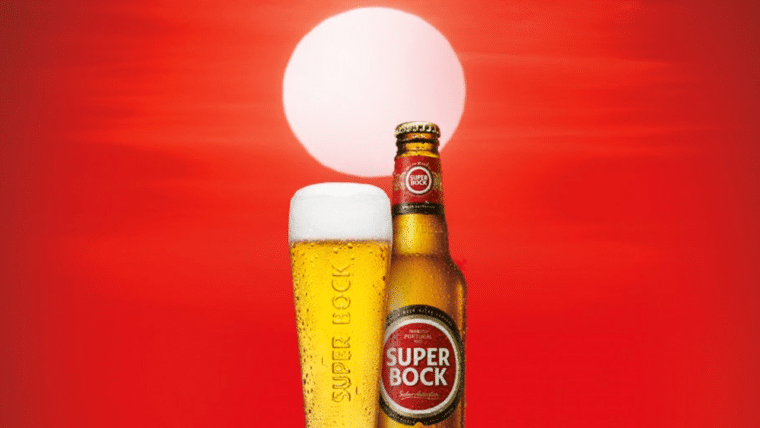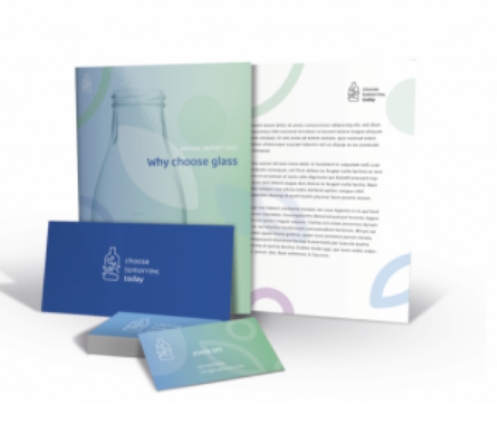How can glass recyclability be a brand asset?
Packaging is your brand’s calling card. It’s a powerful identifier that reminds consumers of what makes your brand special.
On April 28, we had the pleasure of hosting our sixth ‘Future Made Clear’ live Q&A session, featuring Mariana Pereira da Silva, Head of Sustainability at Portuguese retailer SONAE MC and Graça Borges, Director of Communications, Institutional Relations and Sustainability at Portuguese beverages brand Super Bock. They came together to discuss the importance of glass recyclability as a brand asset and how brands and retailers can integrate this into their own story. We got to know how the pioneering Vidro+ platform aims to increase recycling rates. Adeline Farrelly, Secretary General of FEVE, moderated the live session.
Missed the live session? You can still catch up on LinkedIn or read our event recap below.
1. Packaging is your brand’s identity card
A brand can create a smart logo and a catchy slogan, but without the right packaging material, its products may struggle to connect with consumers.
Glass packaging is perfect for branding because it creates an emotional and sensory connection between brands and consumers. Its unique shape and design can capture the core characteristics of a brand, so it appears trustworthy and authentic. With over 70% of purchasing decisions made on the shop floor, packaging needs to tell a differentiated brand story from the first glance.
Packaging’s function is to present a brand’s identity card to consumers, to tell brands stories, and to show and prove their commitment to make their lives better”. – Graça Borges
Our panellists suggest that brands should use glass packaging to interact with consumers and encourage more responsible consumer behaviour. As consumers become more concerned about health and the environment, glass is a perfect fit. Glass serves as a differentiator and proof of the brand or retailer’s commitment to protecting the environment and natural resources. It’s no wonder why 95% of the Super Bock Group beer brands are sold in glass.
2. Glass packaging communicates your brand’s story
For over 135 years, the Super Bock Group has had a strong bond with the glass packaging sector. Over the years, most Super Bock advertisements have been built around the image of the iconic glass Super Bock bottle. In Portugal, it’s a trademark with a distinct storytelling style. A Super Bock bottle is already associated with friendship and great moments. Glass is an iconic packaging that distinguishes Super Bock as more than just a beer; for consumers, it’s an experience.
1. Symbolism: Glass has a close bond with nature. Its endless recyclability symbolises its connection to life and can be used as a powerful brand asset.
2. Sustainability credentials: Made of natural ingredients – sand, limestone and soda ash, along with recycled glass – glass is the only material that can be recycled an infinite number of times with no loss in quality.
3. Functionality: Glass has the advantage of being a single-layer material that is inert and can provide the best conditions for product preservation.
As products on the shelves multiply, storytelling through packaging becomes vital. Retailers can reinforce brands’ sustainability messages by creating more awareness in store.
3. Glass recyclability can be better positioned towards consumers
Consumers are the key drivers of market change. That’s why it’s more important than ever for brands to proactively communicate about the issues that matter most to consumers – especially health and sustainability.
“Consumers expect brands to make tangible steps toward sustainability. There is a growing expectation that the products they already consume will be developed integrating the concerns of sustainable development and they want to know how their choices can have a positive impact.” – Mariana Pereira da Silva
Studies have shown that 75% of Europeans are concerned about litter, and for 35% of Europeans this is the most important factor in their purchasing decisions. Tomorrow’s shoppers – millennial and Gen Z consumers – are after eco-friendly packaging options that promote the circular economy. Glass’ circular credentials respond to this demand – it’s up to brands to capitalise.
4. The entire glass value chain is coming together to recycle through Plataforma Vidro+
The Vidro+ platform aims to boost glass recycling rates in Portugal. Despite being the European country with the highest production of glass per capita, in 2019, Portugal’s recycling rate was only 56.1%. This is a low figure considering that the country needs to reach 70% by 2025.
Now, with the Vidro+ platform the entire glass value chain – manufacturers, packers, retailers, consumers, management entities, municipal systems, waste treatment and more – are joining forces to stop glass bottles ending up in landfill. SONAE MC and Super Bock Group have also joined the initiative to ensure a good balance between economic and environmental impact while improving collection performance.
The platform is also part of the European industry initiative Close the Glass Loop, which aims to achieve an average collection rate of 90% for used glass packaging in the EU by 2030. By working in partnership with the entire value chain, the initiative seeks to make our circular economy work better.
Additionally, the Vidro+ platform intends to increase the quantity and quality of glass recycling by promoting awareness and education activities both at the level of the HORECA channel and retailers, as well as consumers. Smart waste Association is supporting the platform, and brands can get involved by contacting the organisation via the website’s contact page.
Did you learn something about glass recyclability? Do you think glass recyclability can be a brand asset? Head over to LinkedIn and let us know! To keep up to date with the latest trends in the glass industry or our upcoming Q&As, don’t forget to follow our LinkedIn account.




